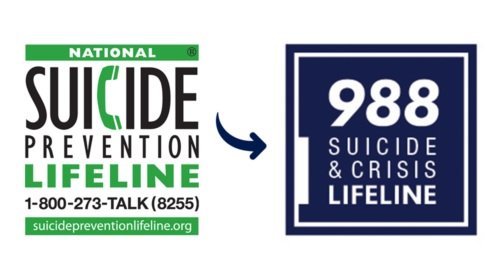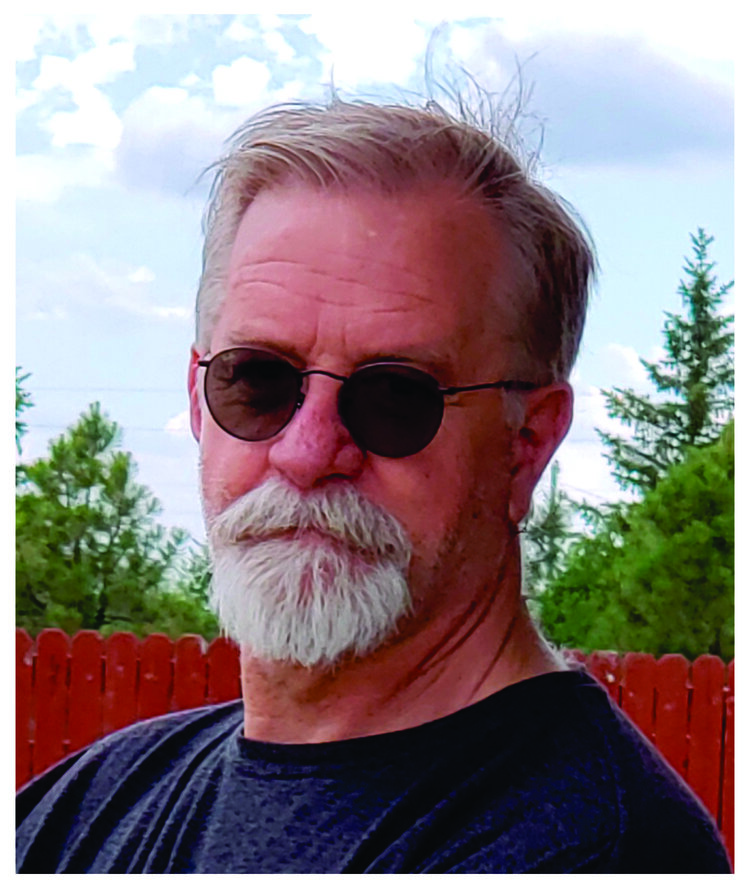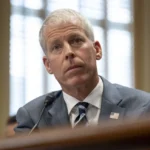Wyoming Launches 24/7 In-State Suicide Call Coverage, But Still Has to Distribute Temporary Funds to Expand Services
The state reported a higher number of suicides in 2021 than in 2020
- Published In: Other News & Features
- Last Updated: Jul 21, 2022

By Shen Wu Tan
Special to the Wyoming Truth
For Dan (“Danno”) Hedrick, of Cheyenne, leading support groups for individuals who have lost loved ones to suicide has been his saving grace.
Hedrick’s brother, David, was 42 when he took his own life on Dec. 14, 2011. A roofer discovered his body at his parent’s second home where David lived at the time. David had attempted suicide a couple years before his death, said Hedrick, who serves as a grief support coordinator for the Grace for 2 Brothers Foundation, a suicide prevention nonprofit.

If David had talked to a mental health professional, Hedrick said, it may have changed the outcome.
For Wyoming residents struggling with suicide ideation, more local help has arrived.
Wyoming recently expanded its in-state suicide hotline services to 24/7 coverage, offering an around-the-clock lifeline in preparation for the mid-July launch of 988, the new national suicide and crisis hotline number.
Two of Wyoming’s suicide call centers received a total $120,000 in federal funding to expand their coverage. Wyoming LifeLine in Greybull and the Central Wyoming Counseling Center in Casper each received $60,000, according to Ralph Nieder-Westermann, president and executive director of Wyoming LifeLine.
The funding allowed both call centers to add two more hours of coverage and for Wyoming LifeLine to add another staff member, Nieder-Westermann said. Wyoming LifeLine now covers calls from 2 a.m. to 4 p.m. while the Central Wyoming Counseling Center takes calls from 4 p.m. to 2 a.m.
“Together, we reached 24/7,” Nieder-Westermann said. “I think it’s just going to be a lifesaver. I think it’s going to have a major impact on the mental health and wellness of residents of our state. There’s also going to be a lot of outreach that has to be done.”
In June, Wyoming LifeLine answered 111 calls and missed 16 calls that had to be rerouted to a national call center since their staff member was already on calls. This month, the center hasn’t missed a call yet, Nieder-Westermann noted.
Funding for expanding suicide prevention services
For 2021, Wyoming reported 189 deaths by suicide among its residents, seven more than what was reported in 2020, provisional data from the state health department shows. About 72% of suicide deaths in 2021 were from firearms, 22% from hanging and 4% from poisoning.
Wyoming recorded the highest suicide rate in the nation in 2020, figures from the Centers for Disease Control and Prevention reveal. That year, the state’s suicide rate was more than double the nationwide rate of 13.5 suicides per 100,000 people with a suicide rate of 30.6 per 100,000, data shows. In 2020, 182 residents took their lives, mostly by firearms. The 2020 suicide rate trails the state’s 15-year high of 31.2 in 2012.
“We win a race that nobody wants to win, and…all of us would like to break that cycle,” Nieder-Westermann said of Wyoming’s high suicide rate. “I think it’s the isolation. I think it’s everybody has got a gun. And it’s tough here. It’s tough to find help.”
Jeremy Bay, executive director of Grace for 2 Brothers Foundation, said he would like funding for an analysis examining why Wyoming’s suicide rate is so much higher compared to similar states. Nebraska, for example, has a rural landscape like Wyoming, but its suicide rate is much lower: 14.9 suicides per 100,000 people in 2020, according to the Centers for Disease Control and Prevention.
Wyoming was the only state without a suicide lifeline call center until 2020, when the state legislature appropriated about $400,000 for two years to launch the Central Wyoming Counseling Center, which operates on a limited schedule. Shortly after that, Wyoming LifeLine opened. Before these two call centers, out-of-state suicide call centers picked up all calls from Wyoming.

In March, Gov. Mark Gordon signed a law that authorized $2.1 million in one-time American Rescue Plan Act (ARPA) funds for 24/7 suicide prevention services in the state.
“The $2.1 million of ARPA funds that were appropriated for the lifeline will be used over the next two years to continue the 24/7 coverage, in addition to the available and budgeted funding that already exists,” said Michael Pearlman, the governor’s spokesperson. “Ongoing funding will be dependent on numerous factors, such as the cost of maintaining the service to ensure it meets demand.”
The process for distributing these ARPA funds has yet to be started. First, the state has to issue a request for proposals (RFP).
“The RFP to support ongoing and hopefully strengthen Wyoming-based 24-hour, seven-day lifeline coverage is pending final approval at the department and is expected to be released soon,” said Kim Deti, spokesperson for the Wyoming Department of Health. She said once the request is released, those interested submit their proposals, and the health department then decides which vendor or vendors will receive funds.
The hope for 988 and its impact on Wyoming communities
If Wyoming LifeLine is selected to receive ARPA funding, Nieder-Westermann said he would add more staff to field calls. He said as the staff stands right now, it will meet the call volume. However, as 988 becomes better known, he expects calls to spike, which happened when 911 launched.
With 988, experts have speculated a potential increase in calls, but the health department is not making any predictions specific to Wyoming at this point, Deti added. Last year, Wyoming averaged 237 monthly calls to the lifeline, she said.
“At this time, we are focused on preparing to help people know about the new number and on ensuring the full-time lifeline services remain available,” Deti told the Wyoming Truth.
Bay from Grace for 2 Brothers Foundation hopes the new three-digit number makes it easier for people to access help and provides a safe avenue for discussing mental health issues with someone familiar with the state.
“Being able to connect to somebody who can truly hear and listen to what you’re saying about what you’re struggling with is important,” Bay said. “When we’re talking about dealing with people with mental health crisis, suicide crisis, empathy is important, and sometimes, it’s hard to have that empathy if you’re not really understanding what the crisis is. We have a lot of ag folks here in Wyoming. And understanding that culture and understanding that lifestyle is important even if it’s just a peripheral understanding.”
While the pain of his brother’s death has lessened over time, Hedrick doesn’t think he will ever be at peace with it. He said he carries a little piece of guilt with him – a feeling that he could have done more to stop David from taking his life.
However, getting involved in suicide loss support groups helps Hedrick find some comfort and understanding. The sessions give him and other group members a chance to reflect on the “refuse and trash” connected to their losses.
Hedrick hopes that the new 24/7 coverage will boost help for people in need and steer them away from suicide ideation.
One day, Hedrick said, he would like to wave a flag and say, “Hey, Wyoming isn’t number one for suicides.”













